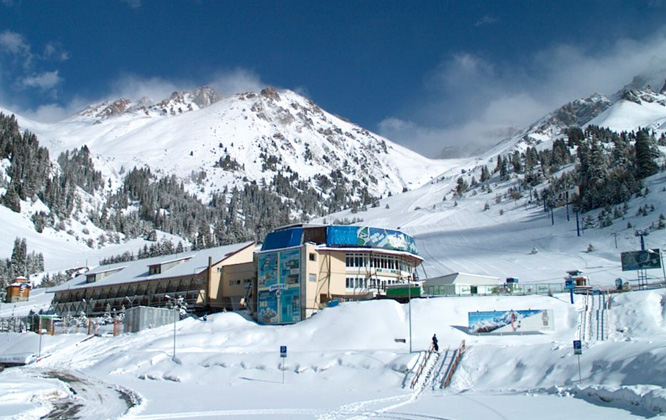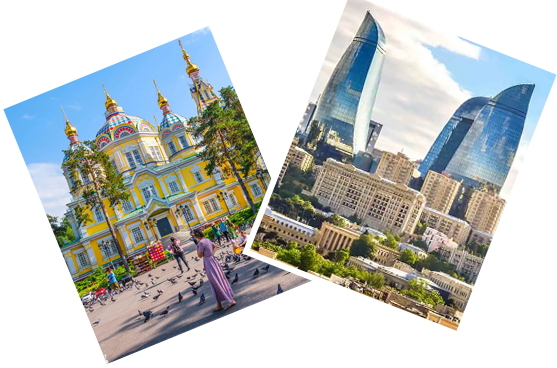
Choose your perfect travel experience
Browse our curated collection of travel destinations worldwide


Discover extraordinary travel experiences and activities

(, )
No
Divided into 2 entities: the Federation of Bosnia and Herzegovina (FBiH) and the Republika Srpska (RS).
Total: 1,543 km, Border Countries: Croatia 956 km, Montenegro 242 km, Serbia 345 km
About Bosnia and Herzegovina
Bosnia and Herzegovina are often known as Bosnia located within the Balkan Peninsular
in South-eastern Europe. The landlocked country has long been
overlooked by many tourists, but it’s finally getting its name to be
considered a travel destination. There are many attractions to see and
things to do in Bosnia and Herzegovina. The country has much to offer,
from its historical monuments, ancient cities, nature, shopping,
nightlife, fun and entertainment.
Geography of Bosnia and Herzegovina
Bosnia and Herzegovina are bordered by Croatia in the north, Montenegro
in the southeast and Serbia to the east. The central and eastern part
of the country is mountainous, the northwest is hilly, and the northeast
is a flatland. In general, the country is very hilly with Dinaric Alps
dominating the scenery.
Climate of Bosnia and Herzegovina
The climate of Bosnia and Herzegovina is of
Mediterranean type characterised by warm summers and cold winters. The
central and western part of the country receives hot and arid summers
while in winters mainly because of the altitude. The temperatures in
winters drop below the freezing point with lots of snow.
History of Bosnia and Herzegovina
In ancient times, the country was known as Illyricum conquered by many
invaders from Rome, Byzantine, Ottoman, Austria-Hungary and Germany. In
1929, it became part of Yugoslavia and was invaded by Germany in 1941.
With the death of the Yugoslavian communist, Marshall Tito, Yugoslavia
began to disintegrate and in 1991, Bosnia and Herzegovina declared their
independence from Yugoslavia.
Culture and Traditions of Bosnia and Herzegovina
The country is diverse in it is ethnic and religion and the people have
respect for all groups and religion in their country. The main ethnic
groups are the Balkans, the Serbs and the Croats. Most of the people are
still orthodox Muslims and there are certain traditions that they still
live with and want outsiders to respect their certain old customs and
traditions.
Food and Cuisine of Bosnia and Herzegovina
The traditional food and cuisine of the country is very similar to that of the Mediterranean and Turkish cuisine.
Bosnia’s cuisine mainly consists of many different spices and added to
the light dishes which are full of natural sauces and juice of
vegetables and meat in the dish. Their popular meat dishes are Ćevapi,
Pljeskavica, Sogan-dolma, Burek, Sarma and many others.
Facts about Bosnia and Herzegovina
1. The currency of Bosnia and Herzegovina is the Marka.
2. Bosnia and Herzegovina was the world champion of volleyball at the 2004 Summer Paralympics.
3. One of Europe’s last jungles can be found at Perućica.
4. Bosnia has three official languages: Bosnian, Croatian, and Serbian.
5. Bosnia and Herzegovina have the tenth highest coffee consumption per capita in the world.
6. Međugorje is incredibly popular with Catholic pilgrims since 1981.
7. Trams were first regularly used in Europe in Sarajevo in 1885.
8. According to the World Tourism Organisation; there are over one million people that visit Bosnia every year.
9. Bosnia and Herzegovina might have a Pyramid.
10. Their national symbol is golden lily.
Tourism in Bosnia and Herzegovina
Tourism in the country is booming and it’s constantly developing with
an increasingly active promotional tourism system. There’s a growth rate
in the number of visitors in the country as it was reported by the
Travel and Tourism Competitiveness Report that Bosnia and Herzegovina
was the world's eighth friendliest nation towards tourists. According to
an estimate of the World Tourism Organization, Bosnia and Herzegovina
will have the third highest tourism growth rate in the world between 1995 and 2020. Lonely Planet has named Sarajevo as the 43rd best city in the world and in December 2009 listed Sarajevo as one of the top ten cities to visit in 2010.
Different Types of Tourism in Bosnia and Herzegovina
1. Historical Tourism in Bosnia and Herzegovina
The country is rich in historical heritage which has its inheritance from six historical civilizations. Some of its main historical sites
are Sarajevo, Mostar, Medjugorje, Neum, and Blagaj. But amongst them
Mostar and Sarajevo stands out for its vibrant art scenes, traditional
restaurants, inviting street cafes and splendid Turkish era stone
architecture which are found in this rural hinterland.
2. Cultural Tourism in Bosnia and Herzegovina
Bosnia and Herzegovina are rich in cultural heritage as most of them
are seen in medieval Ottoman, Austro-Hungarian building, places of
worship and in film, architecture and music. There are numerous cultural monuments that Bosnia has to offer
in places such as Sarajevo, Banja Luka and Mostar. All of the cultural
monuments have been well preserved by the county. Most of what’s left of
old culture and traditions can be found in many museums in the country.
3. Nature Tourism in Bosnia and Herzegovina
Waterfall: Bosnia and Herzegovina are famous for its
crystal clean pristine rivers and waterfalls. It has over 262 minor
rivers and known as the land of rivers with many mountain springs making
its way through the canyons. The most beautiful waterfall in Bosnia and Herzegovina is ŠtrbackiI Buk, Pliva waterfall, Kravice waterfall, Waterfalls in Martin Brod, Koussa waterfall and few others.
4. Winter Sports in Bosnia and Herzegovina
Due to long winters in the country from the month of December to March, the mountains of Bosnia and Herzegovina offer exciting winter sports.
Bosnia has also proved to be one of the most successful of its time in
the 14th Winter Olympic Games. Skiing happens to take place on
Sarajevo’s Mt. Bjelasnica and Jahorina. Sarajevo is known to be one of
the best skiing destinations in southeast Europe.
5. Spa Tourism in Bosnia and Herzegovina
Bosnia and Herzegovina are not only blessed with great mountain rivers
and waterfalls, but it has beautiful thermal springs as well. The
tourism department of the country is heavily investing in installing new
modern equipment in its thermal spa facilities to offer visitors to the country. The spa facilities are available in more than 15 locations and offer a relaxing range of thermal treatments.
6. Honeymoon Tourism in Bosnia and Herzegovina
Bosnia and Herzegovina offer a unique honeymoon experience for couples
as its home to meandering rivers, lakes, mountains, majestic Dinaric
Alps and romantic medieval villages. Some of the country's honeymoon destinations
are Tunnel Spasa, Sarajevo – Baščaršija, Mostar’s Old Bridge, Bunar
River, Blagaj, Una National Park, Vrelo Bosne and few others.
7. MICE Tourism in Bosnia and Herzegovina
Bosnia and Herzegovina have a mix blend of eastern and western culture.
With its climatic condition and excellent geographical setting, it’s an
ideal place for organization of conferences, conventions, seminars,
public gatherings and incentive travel on an international level. They
can be organised in big hotels near the riverside such as Bosna, Una,
Pliva, and Neretva.
Bosnia Tour and Travel Guide
Bosnia and Herzegovina are famous for its crystal
clean pristine rivers and waterfalls. Apart from just its richness in
nature, the country has so much of history and which are inscribed on
the monument, historical places and even its culture and traditions.
Bosnia has also proved to be one of the most successful of its time in
the 14th Winter Olympic Games. Skiing happens to take place on
Sarajevo’s Mt. Bjelasnica and Jahorina. Sarajevo is known to be one of the best skiing destinations in southeast Europe.
1. Accommodation in Bosnia and Herzegovina
Accommodations in Bosnia range from luxurious hotels,
private rooms to budget hotels. Bosnia and Herzegovina get really busy
during peak season (April-October, therefore, it’s always best to plan
all your travels ahead. Hostels are pretty cheap. In some of the small
towns, there are also guest houses which have nice standard rooms and
services.
2. Restaurants in Bosnia and Herzegovina
Bosnia and Herzegovina’s food is good almost anywhere
in the cities. The country offers one to taste Ottoman, Austro-Hungarian
and Balkan flavours. There are the foods of many flavours which are
found in many restaurants, some of which are expensive, budget, local
and street in almost all corners of the city. Few of the popular restaurants in the country are Toplik, Avlija, Dveri, Karuzo, Kibe Mahala and few others
3. Transportation in Bosnia and Herzegovina
By Plane: Sarajevo Airport is the main airport in the
country. Taxi fare from the airport to the cities are quite expensive.
The carrier runs from three metropolitan cities in India to the main
airport. Air Arabia, Qatar Airways and four other airlines fly from
Ahmedabad to Sarajevo twice daily.
By Train: Train service in Bosnia-Herzegovina is slow
and the frequency is low. There's a daily service from Budapest to
Sarajevo via Osijek in Croatia along with many other services that
travel to other European countries.
By Car: Getting around Bosnia-Herzegovina by car can
be the best way to explore this beautiful part of the world. If you want
to cross the borders, ensure you have your papers and licence ready.
4. Shopping in Bosnia and Herzegovina
Bosnia has large shopping centres and malls in the cities. They also have marketplaces, bazaars and boutique shops. While shopping in Bosnia,
take adventurous trips to the shopping alleys which offer great prices
in all kinds of products. The country is best known for its clothes,
shoes, brass, silver and copper goods.
5. Best Time to Visit Bosnia and Herzegovina
Bosnia has its own distinct flavour every season and it depends on when
you visit the nature changes tremendously. The best months to enjoy
summer here are the months of July, August and September. Winter catches
up by the months of December, January and February, which is a great
time for skiing.
6. Bosnia and Herzegovina Travel Tips:
• Bosnia and Herzegovina is a good budget destination.
• Does a fair bit of history research before you go.
• Sarajevo has safe tap water and very strong food safety measures.
• Most hostels offer Wifi.
• You will find prepaid SIM kiosks.
• Stay on paved roads and existing hiking route as landmines are an issue.
• This region of the world is hard for vegetarian travellers.
• Stay with locally-owned accommodation to ensure the money is staying within the communities.
• Most young people in BiH will speak English, especially in towns and cities.
• The two largest grocery store chains in the country which is Bingo and Konzum.
7. Bosnia Flight Connections:
Sarajevo Airport is the main airport in the country.
Emirates, Turkish Airlines, Fly Dubai are some of the major airlines
which fly into the country.
Bosnia Visa Information
Bosnia and Herzegovina visas are required for many foreign nationals.
The processing time of the visa depends upon the number of days of your
stay. You need a passport valid for at least three months past your
planned date of departure. It can take up to 10-14 days of processing
time.
Testimonials
"Our trip with Dook International was just fantastic. We learnt about Vietnam history and culture. We have also tried delicious food of Vietnam and indulge in different adventures…”
Dr.Ramesh Keval chand

Ready to venture out into the world? Fill the form below and start your brand new journey with us

